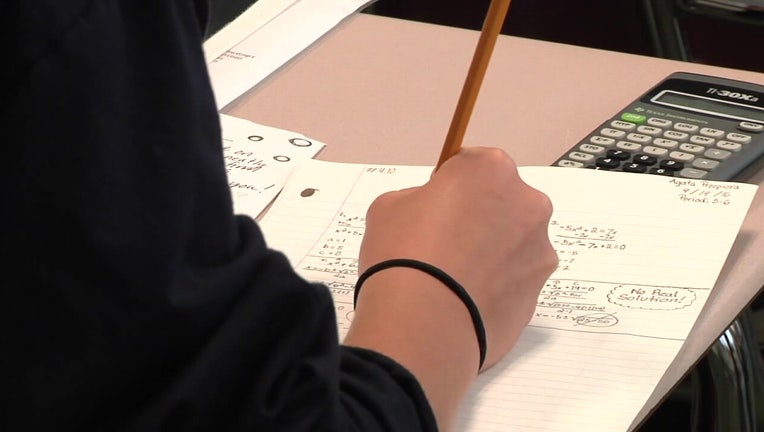School voucher expansion going to DeSantis

TALLAHASSEE, Fla. - Moving Florida a step closer to a major expansion of school vouchers, the Senate on Monday passed a measure that would widen eligibility for taxpayer-funded aid to send children to private schools.
The Republican-controlled Senate voted 25-14 to pass the bill (HB 7045), which passed the House in a 79-36 vote last week. It is now ready to go to Gov. Ron DeSantis.
The wide-ranging bill, in part, would consolidate the Gardiner and McKay scholarship programs, which serve students with special needs, with the Family Empowerment Scholarship program, which serves a broader population of low- to middle-income families.
The proposal also would increase the maximum income eligibility to receive vouchers to 375 percent of the federal poverty level, meaning a family of four making nearly $100,000 a year would qualify.
Senate sponsor Manny Diaz Jr., R-Hialeah, suggested during floor debate Monday that school closures and other effects of the COVID-19 pandemic increased an appetite for educational options in the state.
"The question we have here is a philosophical choice: Do we trust our families to make the right decisions for their student?" Diaz said. "COVID has exposed this even further, because parents have seen the education of their children go on, sometimes, on their dining room table."
RELATED: Colleges, universities could sponsor charter schools
Sen. Loranne Ausley, D-Tallahassee, argued Monday that the Gardiner and McKay scholarships give "real choices" to special needs students and opposed folding the programs into the larger Family Empowerment Scholarship program.
"The changes contemplated by this bill claim to provide more parental choice, but I am very concerned that by combining these two very different programs, we are going to undermine them both," Ausley said.
Diaz pushed back on the idea that the programs serving students with special needs would be put at a disadvantage. Under the measure, students with special needs and the larger population of students would have separate eligibility standards, voucher funding amounts and spending flexibility.
"It … protects the exact (funding) amounts that they are receiving today. Every single student with a Gardiner scholarship is protected, every single student with a McKay scholarship is protected. What it does do in the change is increase the amount of dollars that we provide for those students who have the most severe disabilities," Diaz said.
In addition to increasing income eligibility for voucher programs, the measure would remove a requirement that students receiving vouchers be previously enrolled in public schools. That would open up eligibility to home-schooled students, for instance, to receive vouchers.
The proposal also would make siblings of students currently receiving vouchers and children of military members eligible for the scholarships.
Senate Minority Leader Gary Farmer, D-Lighthouse Point, argued that such an expansion of eligibility would represent an erosion of funding for traditional public schools.
"We just grossly underfund our public schools, while just lavishing money on these private schools that receive these vouchers," Farmer said.
Legislative leaders over the weekend reached an agreement on nearly $22.4 billion in spending on public schools, which includes a boost to per-student funding, and a $50 million increase to a current $500 million plan to increase teacher salaries.
Farmer also argued the private schools that receive vouchers are "almost entirely unaccountable" underperformance and testing requirements placed on traditional public schools.
Proponents of the measure have argued that private schools have to compete for students, meaning they would lose vouchers if they underperform.
Under the bill, the value of vouchers also would increase to 100 percent of the per-student funding amount for public schools, from the current 95 percent under the bill.
A House staff analysis of the bill this month said the proposed expansion could have a "maximum fiscal impact" of $200 million, based on a projection that it could lead to funding more than 61,000 new vouchers.
The proposal also would allow Family Empowerment Scholarship recipients to spend the funds on items beyond private school tuition, like digital devices and internet costs, with a wider range of expenses allowed for special needs students.
Senate President Wilton Simpson, R-Trilby, touted the bill.
"I’m pleased to see the Senate stand with Florida parents who overwhelmingly support expanding eligibility for these popular school choice programs. We know that parents are their children’s first and best educators, a fact that has certainly been highlighted over the last year," Simpson said in a prepared statement.
Tune in to FOX 35 Orlando for the latest Central Florida news.

